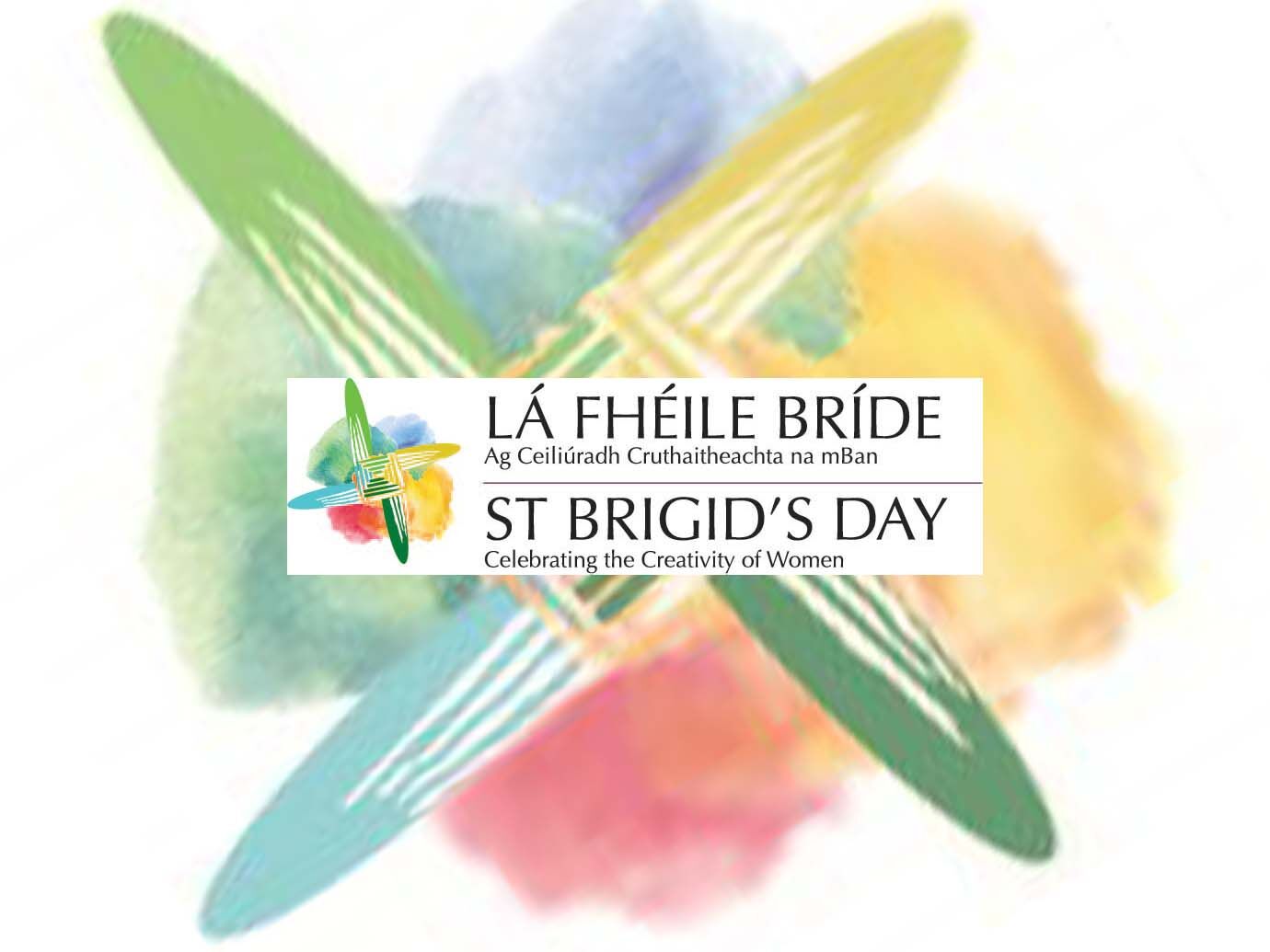
St. Brigid's Day

February 1 marks the Feast Day of St. Brigid in the Christian Calendar but there is no simple story to define this woman and her place in history. There is even some doubt that she existed!
As with the stories of saints from ancient times, it is necessary to look into the mists of time to discern the layers of myth and legend that surround the stories of these men and women. The written texts recording these myths and legends were written centuries after they had been handed down from bard to bard through story and song.
While Brigid, Abbess of Kildare is now honoured as one of the three patron saints of Ireland – along with Patrick and Columba, her story is entwined like a Celtic knot with the story of Brigid, the Celtic goddess of Irish mythology.
When Christianity came to Ireland, it was smoothly grafted on to the pre-Christian beliefs that had existed for centuries. There were common elements which made it easier for the new religion to absorb rather than to defeat the old. The new Christian story rested on the ancient story, often moving easily between the two.
The world of the pre-Christian Celts involved the observance of four great festivals marking the change of seasons.
The beginning of the year was Samhain on November 1- the day the gate between the worlds are open and spirits can pass from one to another. The Christian Calendar celebrates this as All Saints Day and even Halloween.
Imbolc was celebrated on February 1 as the feast day of Brigid the goddess of fertility and was associated with new life in Spring and the coming of the light. Later this day became associated with Candlemas Day.
Beltane was on May 1 and is associated with the praise of the sun and the lighting of new fires to replace the fires of winter. It is considered a time for new beginnings. Fire festivals are still held at this time in many countries including Australia.
Lughnasa was on August 1 in honour of the sun god Lugh and is connected with the Christian Harvest festival and celebration of the earth.
The juxtaposition of the ancient and the new can be seen in the story of Brigid .Many of the attributes of the goddess have been transferred to the little we know of the historical woman.
St.Brigid is said to have been born on February 1 near Dundalk in 450. She is said to have founded the Monastery at Kildare in 480 on the site of a pagan shrine to the goddess Brigid. The Shrine of St Brigid is in the town of Kildare to the present day and is a place of pilgrimage and festivals.
Legends abound about St. Brigid and the community she established at Kildare. The cult of Brigid spread far beyond Ireland taken by the saints of the Irish Church wherever they travelled. There are churches named after her all over the world.
She is mentioned as playing an important role in choosing Bishops and has been described as the Superior general of the Monasteries of Ireland. She presided over a double Monastery of both men and women which was not unusual in the Celtic Church and was practised in the North of England when Hilda was Abbess of Whitby at the time of the Synod of Whitby in 664.
The spirit of Brigid is alive and well throughout the world today whatever the origins of her story. It is a story of a life of service, linked to the deep roots of Celtic Spirituality linking the myths and legends of the ancient world to the world of today where they resonate still.
Sources:
- Chadwick,N The Celts 1971
- Toulson, S. The Celtic Alternative 1987
- Caldecott,M Women in Celtic Myth 1988
- Delaney, F The Celts 1989
- Lehane,B Early Celtic Christianity









Post a Comment
No comments yet. Start a discussion!